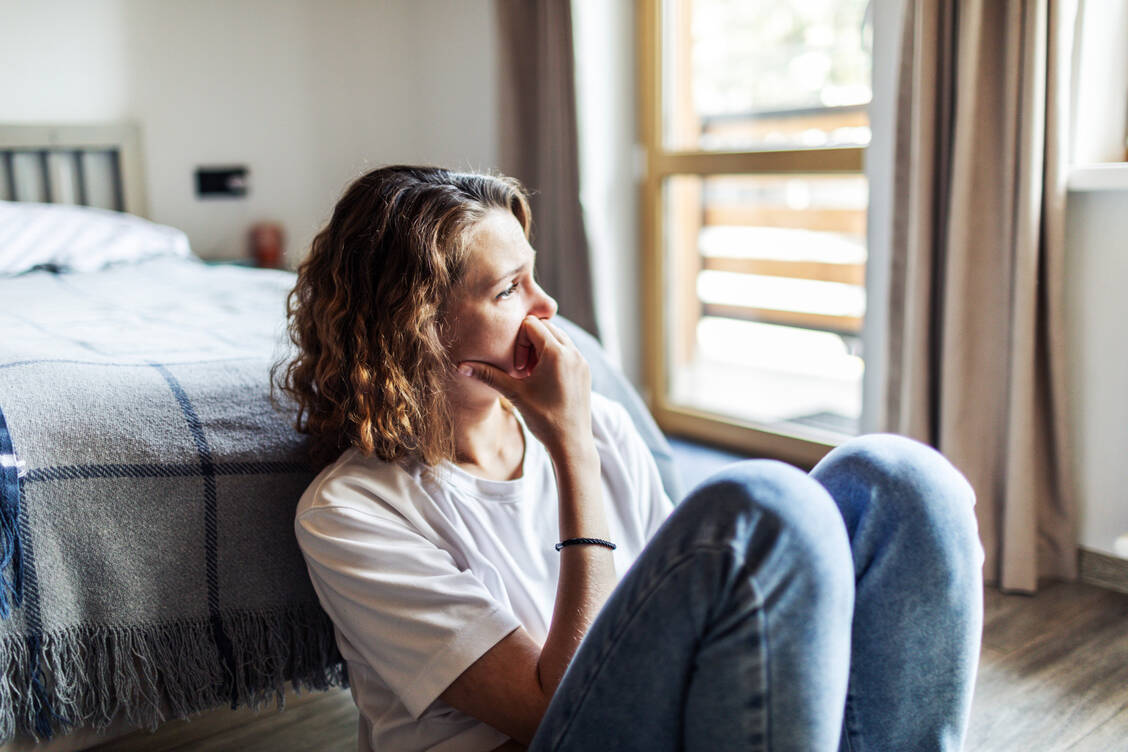In times of great loss: Staying healthy despite grief



Women can grieve more easily than men, but they can experience physical symptoms such as heartburn or exhaustion. / © Getty Images/JulPo
Grief manifests itself differently in everyone, and grief cannot be defined by a specific time frame. Physical consequences after the loss of a close relative or friend are also not uncommon: from back pain and migraines to digestive problems and heart palpitations. But there are warning signs that indicate it's time to seek professional help.
"People who are grieving actually feel sick. And we often have to reassure them that the symptoms they are displaying are completely normal," says grief counselor Marei Rascher-Held. Because when you have physical If you feel pain when you can't sleep because you're grieving, then this is a stress reaction: "The body is working and expressing itself," with all the symptoms that go with it. "When my soul is sick, I can't digest well, something upsets my stomach, or I grit my teeth, tense up, and have shoulder problems."
"Grief itself doesn't make you sick," confirms grief researcher and author Roland Kachler. "It's a completely normal reaction of our attachment system." But chronic grief can also trigger disease processes through existing predispositions. The body is then under constant stress, and the immune system is constantly subliminally activated, even though it is simultaneously weakened. So-called "silent inflammation" can result. This often manifests itself in symptoms ranging from exhaustion to fatigue, pain disorders, particularly in the skeleton and muscles, but also in constant susceptibility to colds and infections. Sometimes there is also migratory pain.
The psychologist, who is currently working on a book entitled "The Body in Grief," has observed that grief manifests itself differently between the sexes: "Men react much more strongly through muscles and fascia," says Kachler. They try to cope with the pain of loss with force. And as a result, they often suffer for a long time from back and shoulder pain, muscle tension, teeth grinding, and rheumatic problems.
Women, on the other hand, may find it easier to grieve. "They are more willing to face grief and pain," says Kachler. They often react to the loss with heartache – for example, the feeling that the Their heart may burn. Or they may feel tightness in their chest, and their breathing may be shallow. Fatigue and weakness are also common physical consequences.
"Especially when death was unexpected, for example, because a child died (suddenly) or a loved one died by suicide, accident, or violence, the pain of loss manifests itself in such impairments for a long time," says Rascher-Held, chairwoman of the German Association for Grief Counseling. Other accompanying circumstances—such as not being able to say goodbye or lacking a strong social network—can also lead to more difficult grief: "These are risk factors that can lead to grief becoming physically entrenched."

pharmazeutische-zeitung





